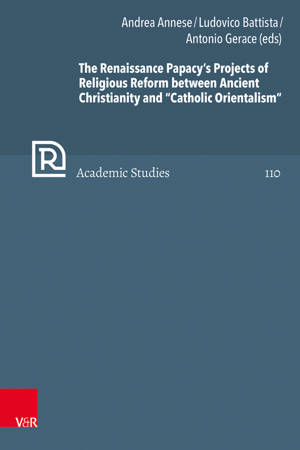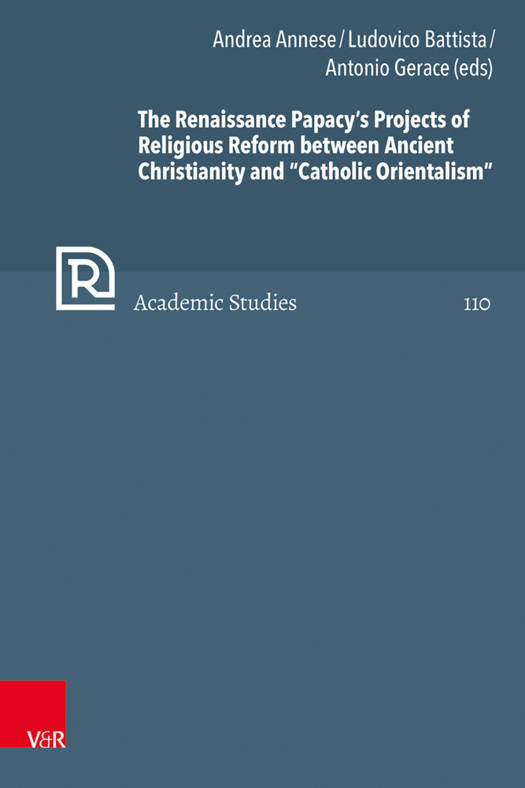
- Afhalen na 1 uur in een winkel met voorraad
- Gratis thuislevering in België vanaf € 30
- Ruim aanbod met 7 miljoen producten
- Afhalen na 1 uur in een winkel met voorraad
- Gratis thuislevering in België vanaf € 30
- Ruim aanbod met 7 miljoen producten
Zoeken
The Renaissance Papacy's Projects of Religious Reform Between Ancient Christianity and 'Catholic Orientalism
€ 138,45
+ 276 punten
Uitvoering
Omschrijving
Within the framework of a research project aimed at a systematic reconstruction of the ideology of Papacy in the years 1431-1549 (PRIN 2022 2022BXT33X) this volume takes the Renaissance Church as an institution promoting an ambivalent and complex project of religious reform, where the ideal of the affirmation of a new political power, coexists - in dialectic tension - with the attempt to absorb and channel the diverse claims for the spiritual renewal of the Church, based on Biblical and apocalyptic motifs. In particular, this volume explores 1) the influence of texts and motifs from early Christianity on the literature produced in the years 1431-1549 (e.g., the use of Patristic texts; the reception of Biblical motifs in the ideology of reform and in political theology); 2) the rise of the so-called "Catholic orientalism" in Renaissance Rome (biblical scholarship, interpretation of Hebrew texts, Christian Kabbalah), which influenced the conceptualization of different types of Christianity. This edited volume analyzes how Roman Catholic theologians in Rome used Bible exegesis, Patristic writings, and Hebrew studies to defend the Papacy's authority against scholars like Lorenzo Valla, as well as the rising tide of the Reformation.
Specificaties
Betrokkenen
- Uitgeverij:
Inhoud
- Aantal bladzijden:
- 256
- Taal:
- Engels
- Reeks:
- Reeksnummer:
- nr. 110
Eigenschappen
- Productcode (EAN):
- 9783525573655
- Verschijningsdatum:
- 13/10/2025
- Uitvoering:
- Hardcover
- Formaat:
- Genaaid
- Afmetingen:
- 155 mm x 231 mm
- Gewicht:
- 535 g

Alleen bij Standaard Boekhandel
+ 276 punten op je klantenkaart van Standaard Boekhandel
Beoordelingen
We publiceren alleen reviews die voldoen aan de voorwaarden voor reviews. Bekijk onze voorwaarden voor reviews.






